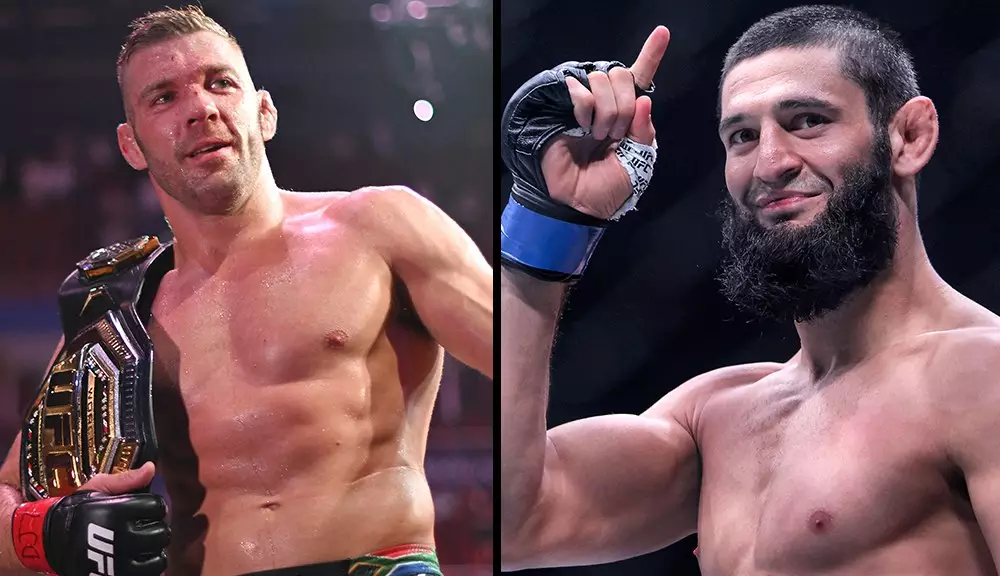The recent UFC 312 event at Qudos Bank Arena in Sydney showcased a compelling mix of performances that left fans buzzing. While championship fights often take center stage in these events, the preliminary matches held their own significance, especially the notable bout between bantamweights Aleksandre Topuria and Colby Thicknesse. Analyzing what transpired during this fight, alongside the outcomes of significant championship matches, unveils deeper narratives within the UFC that expand beyond mere statistics.
In a fight not only marked by competitive spirit but also an intriguing familial backstory, Aleksandre Topuria faced off against Colby Thicknesse. The match was particularly noteworthy because Topuria is the older sibling of UFC featherweight champion Ilia Topuria, while Thicknesse is a trainee of revered former champion Alexander Volkanovski. Upon entering the octagon, there was palpable respect between the fighters. Despite the pre-fight camaraderie, the stakes were undoubtedly high and the pressure on Topuria immense. His victory by unanimous decision showcased his skills, yet the fight did little to parse the lingering question about whether he could one day rival his brother’s accomplishments.
As Topuria looks to make his mark at bantamweight, it’s essential to evaluate his capabilities within the context of an ever-evolving division. Each bout offers an opportunity for growth, and this win could serve as a stepping-stone, positioning him for higher-caliber opponents as he aims for a title shot. The respect shown before and after the fight adds a layer of narrative to Topuria’s career—navigating the path behind the shadows of a champion brother is no small feat.
On the other end of the spectrum, Tatiana Suarez’s challenge against Zhang Weili was a brutal encounter that exposed vulnerabilities in Suarez’s game plan. Emerging from her career highs and lows, including injuries and a long-awaited title shot, Suarez found herself outmatched. Weili’s technical skill was on full display as she navigated and nullified Suarez’s strengths, leaving her opponents with little room for offensive maneuvers. The defeat was undoubtedly a bitter pill to swallow, especially since it came after a relentless pursuit of championship status.
Suarez’s journey in the UFC has been fraught with setbacks, and while this loss might feel disheartening, it’s crucial to recognize that she possesses the talent and determination to bounce back. At 34, the looming question remains: can she innovate her style to stay competitive within a rapidly advancing division? Acknowledging her heart and tenacity throughout the fight, one must wonder what adjustments she can make to regain her status among the elite fighters in the strawweight category.
Conversely, Zhang Weili turned the tables on expectations by delivering a performance that put her firmly back into the spotlight. Battling skepticism surrounding her championship reign, Weili not only defended her title but did so with precision and dominance that solidified her standing as a formidable champion. UFC CEO Dana White’s post-fight remarks cemented Weili’s status as a preferred contender for future super fights, including a potential clash against Valentina Shevchenko.
Her ability to adapt and rise above early career setbacks has solidified Weili’s legacy in the octagon, serving as a testament to her growth as an athlete. The narrative surrounding her journey to reclaim her title offers a fascinating element to the ongoing discussions around women’s divisions—making prospective matchups fraught with excitement.
In contrast to these rising narratives, Sean Strickland’s defeat to Dricus Du Plessis raises questions about his future within the UFC. Strickland entered this fight amid increasing public discontent regarding his persona, and his performance did little to quell those sentiments. Battling through adversity, having suffered a broken nose during the match, demonstrated his toughness; however, it also illuminated problematic aspects of his fighting strategy. Despite pre-fight assertions of varying his approach, Strickland remained static, ultimately leading to a one-sided loss.
As Strickland faces heightened scrutiny moving forward, questions regarding his ability to reclaim championship contention linger. His narrative serves as a cautionary tale for fighters who rely more on persona than performance—platforms built in the octagon are often fragile, and Strickland’s experience is a sobering reminder of this fact.
Dricus Du Plessis continues to rise as a champion, but his future hangs on the precipice of competition, particularly regarding a highly anticipated clash with undefeated Khamzat Chimaev. While Du Plessis has proven difficult to defeat, the weight of expectation and public perception may shift dramatically against him, should he falter in his next defense. If Du Plessis can execute a decisive victory against the highly regarded Chimaev, it may require the MMA community to re-evaluate his standing and capabilities.
As the narrative of each fighter develops, the post-fight analyses from UFC 312 serve as a reminder of the stakes involved in professional fighting. Each match not only shapes individual careers but also has wider implications on the sport as a whole. The intersections of pressure, performance, and personal stories add layers of complexity to each tale that unfolds in the octagon, keeping fans eagerly watching the next chapter.

